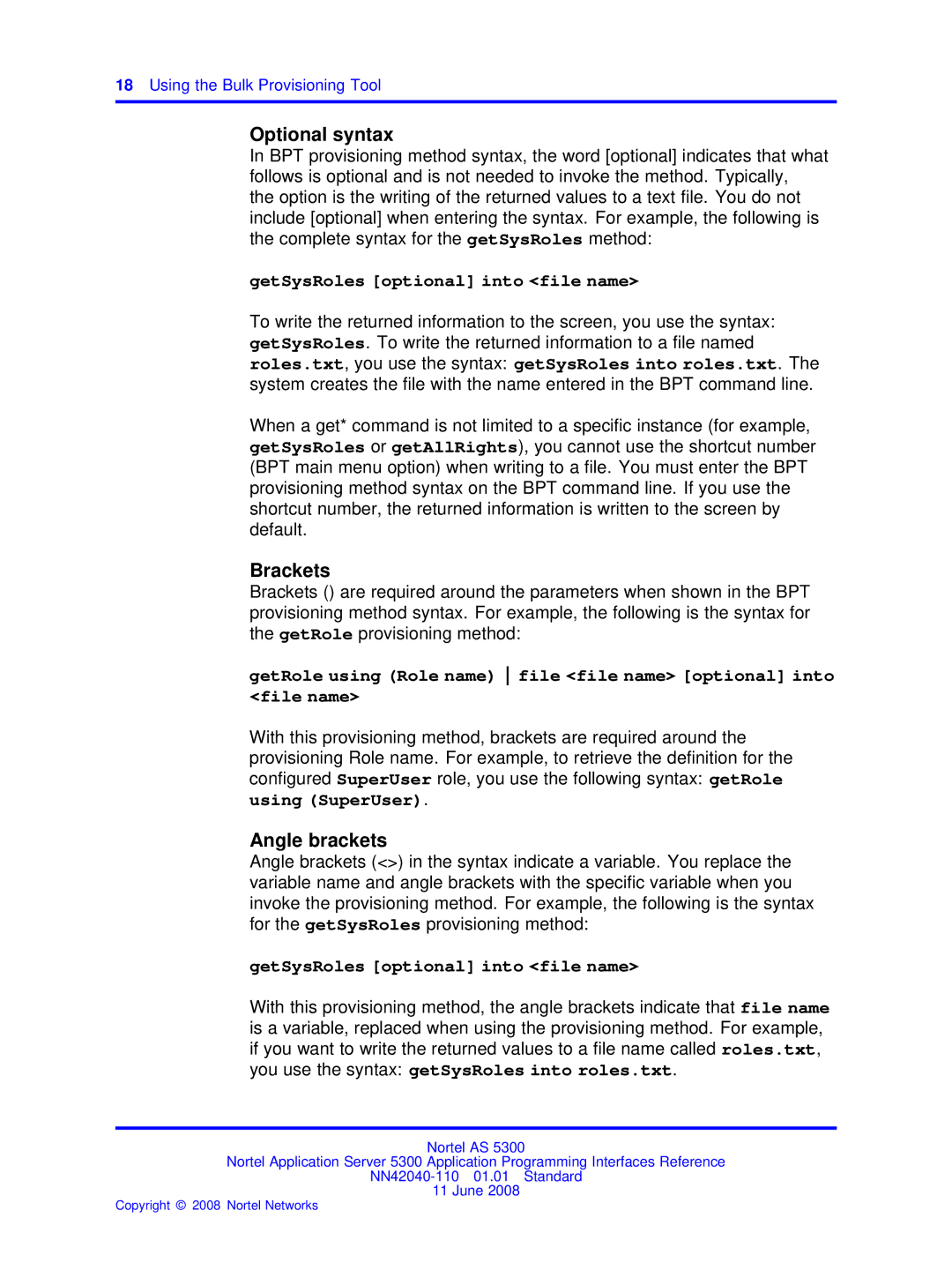
18Using the Bulk Provisioning Tool
Optional syntax
In BPT provisioning method syntax, the word [optional] indicates that what follows is optional and is not needed to invoke the method. Typically, the option is the writing of the returned values to a text file. You do not include [optional] when entering the syntax. For example, the following is the complete syntax for the getSysRoles method:
getSysRoles [optional] into <file name>
To write the returned information to the screen, you use the syntax: getSysRoles. To write the returned information to a file named roles.txt, you use the syntax: getSysRoles into roles.txt. The system creates the file with the name entered in the BPT command line.
When a get* command is not limited to a specific instance (for example, getSysRoles or getAllRights), you cannot use the shortcut number (BPT main menu option) when writing to a file. You must enter the BPT provisioning method syntax on the BPT command line. If you use the shortcut number, the returned information is written to the screen by default.
Brackets
Brackets () are required around the parameters when shown in the BPT provisioning method syntax. For example, the following is the syntax for the getRole provisioning method:
getRole using (Role name) file <file name> [optional] into <file name>
With this provisioning method, brackets are required around the provisioning Role name. For example, to retrieve the definition for the configured SuperUser role, you use the following syntax: getRole using (SuperUser).
Angle brackets
Angle brackets (<>) in the syntax indicate a variable. You replace the variable name and angle brackets with the specific variable when you invoke the provisioning method. For example, the following is the syntax for the getSysRoles provisioning method:
getSysRoles [optional] into <file name>
With this provisioning method, the angle brackets indicate that file name is a variable, replaced when using the provisioning method. For example, if you want to write the returned values to a file name called roles.txt, you use the syntax: getSysRoles into roles.txt.
Nortel AS 5300
Nortel Application Server 5300 Application Programming Interfaces Reference
11 June 2008
Copyright © 2008 Nortel Networks
